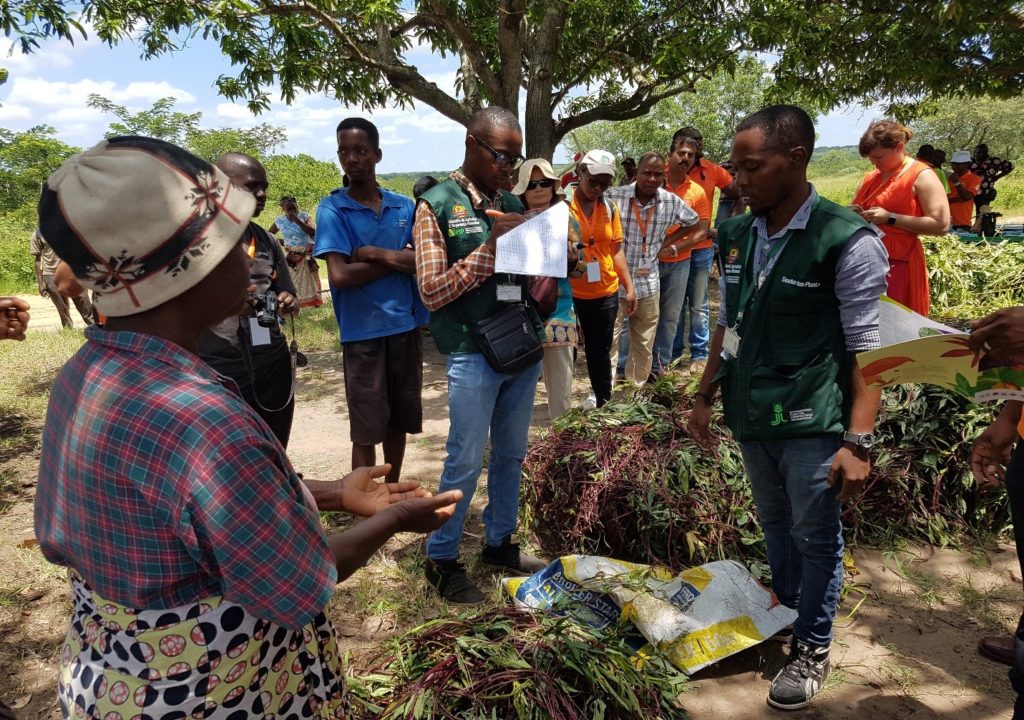With the recent global recognition of CIP’s work in biofortification through the award of World Food Prize has come questions about the evidence of the success that informed the award. This evidence will no doubt come from the CIP team and its partners who routinely monitor and evaluate sweetpotato projects globally, but especially in Sub-Sahara Africa. The SASHA-convened MLE Community of Practice (CoP) held its annual (2017) meeting in Maputo – Mozambique from January 31 to February 03, 2017, with this in mind.
The MLE CoP meeting focused on retooling this M&E and Impact Assessment (M&E-IA) team with harmonized tools and techniques for systematic capture, analysis and presentation of results of the data they collect routinely. Specifically, the meeting focused on training participants on the SASHA-sponsored Manual titled “Tools and Techniques for Monitoring Key Indicators of Sweetpotato Interventions in Sub-Sahara Africa: A Practitioner’s Manual”. The Manual comprises 10 Modules that target collection of data on indicators ranging from beneficiaries of orange-fleshed sweetpotato (OFSP) vines, diet quality changes, productivity/yield changes, as well as sales and income changes. Each module presents a justification, tools for data capture (which can be electronic or paper form), detailed explanation of data transfer to Stata statistical software, and a Stata program for generating results tables. A hands-on training on each of these aspects horned the participant’s skills on the use of the Manual.
The in-room session on the module for capturing vine beneficiaries was complemented with the actual use of the data capture tools during real vine distribution event in a rural community about 4-hour drive from Maputo. This field event was aimed at demonstrating how to register and target beneficiaries of a project during the mass distribution of OFSP vines in a systematic way to avoid double-counting or missing out on beneficiaries, while ensuring the beneficiaries fulfil indicator requirements. A total of 28 participants from Nigeria/Ghana, Burkina Faso, Benin, Ethiopia, Kenya, Uganda, Rwanda, Malawi, Tanzania and Mozambique. M&E staff from CIP partners in SSA namely, Harvestplus, Helen Keller International, Farm Concern International, Institute of Development Enterprises and a USAID representative from Maputo office participated in the training. The training was organized by Julius Okello, the MLE CoP leader, Jan Low, Tassy Kariuki, Temesgen Bocher, Luka Wanjohi and Kirimi Sindi, and with a lot of in-country support from Maria Andrade and her Mozambican team (including Langa Ligia, Roland Brouwer and Adbul Naico).
A vulnerable (blind) OFSP vine beneficiary being registered during field mass distribution event as trainees observe (Credits: J. Okello)
The feedback from the meeting was both positive and inspiring. Majority of the trainees praised the Manual and indicated that they will use it routinely for monitoring and evaluation data collection. Indeed, six of the modules were immediately adopted for use in an endline survey that has just started in Nigeria, Ghana and Burkina Faso. The 10 Modules in their entirety will also be soon tested/applied in Mozambique and Rwanda. These applications will provide useful feedback on the versatility and utility of the Manual across different projects and countries in the region and necessary changes needed to instutionalize the Manual.

2 Comments. Leave new
Sounds like the way to go for data collection, collation and analysis. Any chance the Manual/Modules can be made available to the sweetpotato community? From PNG.
Dear Matthew,
Thank you for your response. The manual and corresponding modules will be made available at this portal as soon as they are finalized. Until then, Julius may be able to provide you with some tools that have already been completed.